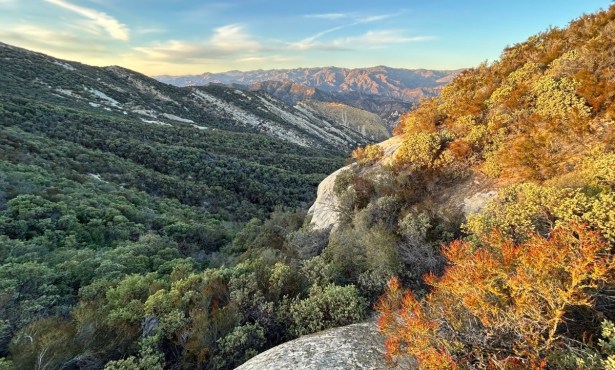The New Poverty
The current standoff in Copenhagen revolves around “climate justice.” Sudan’s representative insists that the African nations are owed the right to a lifestyle like the industrial nations. (This from the perpetrators of the most hideous genocide in recent history.) The bottom line is really that we don’t even have time to have the argument about the undeveloped world getting their turn at over-consumption, much less time for them to do it.
When it was suggested to Haiti’s President Aristide that Haiti needed to “develop” years ago, the former Catholic priest replied that he only wanted “poverty with dignity” for his people. Actually, you don’t have to go far from Haiti to see poverty with dignity. The Dominican Republic, occupying the same island, has preserved its natural resources for its citizens in a vast national park system and is increasingly producing food for its people through small agriculture. Less than 100 miles away, Cuba is increasingly growing local, organically grown produce for its people, and Nicaragua’s cooperatives are flourishing. All four countries are among the poorest in the hemisphere.
How can poverty be dignified? Cuba is a society with very little spendable money, but with quality health care from the cradle to the grave at no cost and quality free education for all. They are poor in lack of Xboxes and flat screen TVs, iPods, and cell phones. Motor vehicles are few and far between and used for cargo or mass transit. (groups.yahoo.com/group/SBProgCoalition)
So I propose to you that “climate justice” is not justice at all but a call for extinction, and what is needed is poverty with dignity, not just for the poor but for all earthlings. – Lane Anderson
* * *
Talk about trying to end uncertainty, what is the anti-climate change movement about? Its assumption is that the climate is not supposed to change. If it does change, this is a horrible, horrible thing. Climate is not supposed to change, it is supposed to stay the same always. Therefore government has an obligation to prevent climate change. Then we will live again in a stable, secure, certain world. Dream on.-Nik Schiffmann
* * *
Copenhagen, 14 December 2009: We, members of Oilwatch Southeast Asia[i] and Indonesian Civil Society Forum for Climate Justice (CSF) declare our common position and demands on the current climate negotiation in COP 15 UNFCCC Copenhagen. We have witnessed the lack of leadership among industrial countries to significantly cut carbon emission let alone show their responsibility to support developing countries to tackle the impacts of climate change.
Southeast Asia is considered as one of the most vulnerable regions in the world to impacts of climate crisis. Most of the Southeast Asian countries are poor and majority of the population in the region live in deep poverty resulting to a very low capacity to adapt to climate change impacts. The location of the region poses high risk for disasters such as typhoons, droughts, earthquakes, and flooding.
We are disappointed that the negotiations in COP15 UNFCCC do not take into account the reality in the ground that fossil fuel exploitation by industrial countries have been going from strength to strength. Oil and gas projects of transnational corporations are mushrooming and demand for coal is increasing[ii]..
Big foreign and private corporations such as Royal Dutch Shell, BHP Biliton, CNUOC, Chevron Texaco, Amarada Hess, Conoco Phillips and Bumi Resources, are the same actors who plunder natural resources and pollute the environment[iii]. These big corporations control and exploit the rich natural resources of the region particularly fossil resources like oil, gas and coal. Also these entities with the support of international financial institutions like International Monetary Fund, World Bank and Asian Development Bank, are the owners and suppliers of fossil-based technologies and products that the people of Southeast Asian are forced to be dependent with.
Given the fact that burning and consumption of fossil fuels especially oil and coal is the leading cause of global carbon emission, we demand the national governments in Southeast Asia
• • To agree on a common position to push for more than 40% carbon reduction from ANNEX I countries by 2020 from the level of 1990.
• To demand from ANNEX I countries to compensate Third World countries from ecological debt and fund their mitigation and adaptation initiatives
• To declare an immediate moratorium on new exploration and commercial operation of oil, gas and coal by big transnational companies in the region.
• To define a concrete timeline and comprehensive plan on eventual phase out of fossil fuel extraction and usage in the region.
In this regard there should be a significant investment on research and fast development of technologies that harness alternative and renewable resources of energy that are cheap, safe and clean. This is needed to make the economy and energy needs of Southeast Asia to veer away from relying on the production and consumption of fossil fuels. Majority of the income and revenues from the existing extraction of fossil fuel in the regions should be automatically appropriated for funding public services
We oppose the false solutions being implemented and pushed for by ANNEX I countries and their transnational corporations such as carbon trading, clean development mechanism, the proposed REDD and ‘clean’ coal technologies. These market-based and profit-oriented solutions put the interest of private corporations and ruling elite above anything else.
We push for the leaders of Southeast Asia countries to unite for truly address the issue of climate change and curb global warming. There should be a reversal of the orientation and framework of economic development and production in the region. In this regard, climate solutions should be based on human security, rectification of ecological debt, land rights, the change of production and consumption pattern, to realize social justice and people’s sovereignty.
These principles ensure in the heart of climate solutions are the welfare and interest of the people and the environment.
The Oilwatch Southeast Asia, CSF, PACC, La’o Hamutuk and TCJ remain committed not only in pushing for genuine climate solutions but also in steadfastly fight along with grassroots communities against agreement, policies, program and projects that will further aggravate climate change and endanger our communities.-Oilwatch SEA
(Oilwatch SEA is a regional alliance of fossil fuels-affected communities and support organizations from Arakan Oil Watch from Burma; Indonesian Civil Society Forum on Climate Justice (CSF) and JATAM from Indonesia; Friends of the Earth from Malaysia; People’s Action on Climate Change (PACC), Kalikasan People’s Network for the Environment (Kalikasan-PNE) and Central Visayas Fisherfolk Development Center Inc. from Philippines; Timor-Leste Institute for Development Monitoring and Analysis (La’o hamutuk) from Timor Leste; and Thai Working for Climate Justice (TCJ) and Ecological Alert and RecoveryThailand, from Thailand.)



